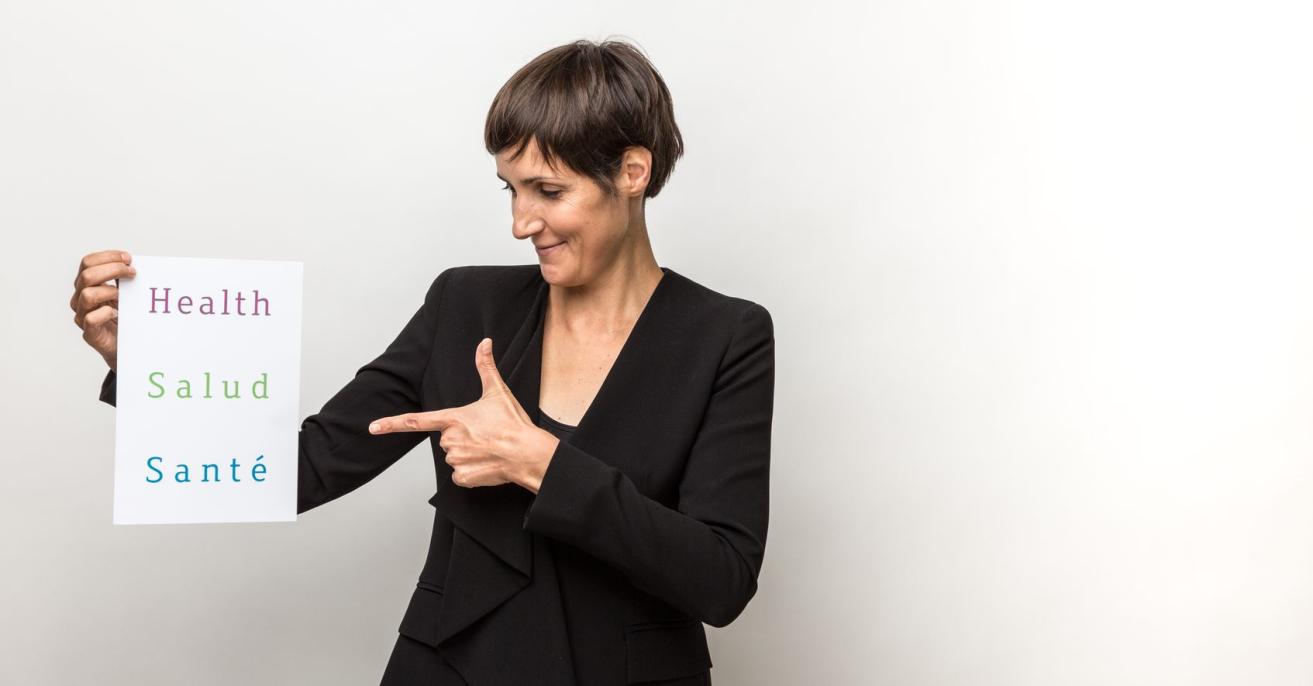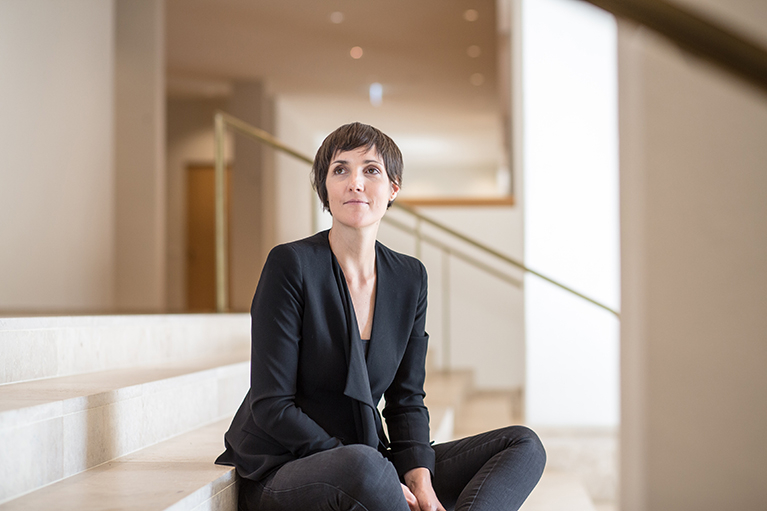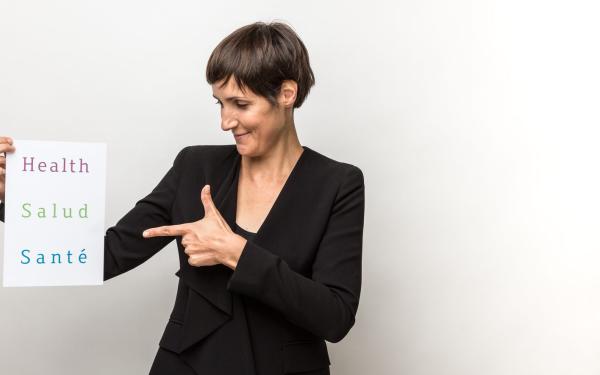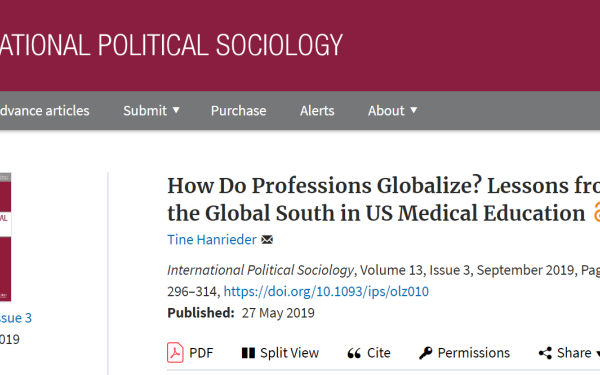
Martin Bühler für VolkswagenStiftung
How the corona crisis reveals the balance of power in medicine
Freigeist Fellow Dr. Tine Hanrieder talks about how the pandemic is impacting on her research – and what she would like to see happen for people working on the front lines of global health care.
Tine Hanrieder heads the research group "Global Humanitarian Medicine" at the WZB Berlin Social Science Center, which investigates expert hierarchies in the field of global health. Her project "Medical Internationalisms and the Making of Global Public Health (Dr.GLOBAL)" is funded by the Volkswagen Foundation in the frame of a Freigeist Fellowship. It examines the internationalization of the medical professions in France, Cuba and the USA and while focusing on how care models from the Global South are applied and reinterpreted by professional groups in the Global North.
Dr. Hanrieder, how strongly does the coronavirus pandemic affect your research?
Well, otherwise I would be visiting archives and attending conferences in the USA. This kind of research, though, has no longer been possible for 2 months or so. Instead, there are currently many webinars and online forums and meetings where the various expert communities and professional groups come together.
On the positive side, the topic of "global health policy" is suddenly on everyone’s lips – but this window of opportunity will soon close again.
Does this mean that the corona crisis has given rise to some positive inputs and new research questions?
My research group is concerned with the question of how care models are transported from the Global South to the Global North, for example in the humanitarian field or through models built on so-called "community health workers". This model is currently being heavily promoted. Health professionals with experience of working in developing countries are now making proposals to train a "reserve army" of ordinary health workers in countries of the Global North, for example in Great Britain or the USA.

Dr. Tine Hanrieder forscht am Wissenschaftszentrum Berlin für Sozialforschung.
The question of who should actually be allowed to set the agenda is currently being re-evaluated: The scientific institutions? The political level? Or the health workers themselves, the front line level? We are seeing more and more protest actions and trade union awareness in occupational groups that are traditionally first and foremost defined by their altruism and therefore – despite all their systemic relevance – feel uncomfortable when it comes to standing up for their rights. But for all that, currently a number of fundamental questions are indeed now coming in for scrutiny worldwide: Where should we set priorities? Who gets a say? What’s in the interest of the country? What’s in the interest of socially disadvantaged groups?
I’m watching all this very closely, and I’m curious to see where it all ends.
Does the pandemic also have any direct impact on your Freigeist project?
Some of the developments surrounding this crisis seem to confirm some of our earlier project findings. These include the fact that political imports from the Global South tend to reflect inherently colonial attitudes. In one US state, for instance, an internationally active NGO has launched a large-scale community health worker program to ensure contact tracing and broader social support on a wide scale. This NGO initially designed its program in complete absence of consultation with the existing professional association for community health workers on the spot. Although the cosmopolitan and academic elites who set up such programs celebrate the achievements of community health workers – who are mostly precariously employed, mostly female and mostly belong to ethnic minorities – they fail to draw on the expertise these helpers have built up over the years. The local people on the front line have to fight for every ounce of recognition.
Videointerview: Tine Hanrieder talks about her Freigeist Project (in German)

Could the crisis possibly also do some good?
At the moment, the prime issue is how federal states and municipalities can get through the crisis in a reasonably socially acceptable manner – some dramatic differences exist here. But looking to the future, the coronavirus has put a new focus on the overload faced by health workers on the front line and just how vulnerable they are. They are currently getting a lot of attention, with public applause and more trade union involvement. I hope that this visibility will also be reflected in better conditions for health workers, especially in primary care. But this calls for a sustained mobilization to address such concerns, and ultimately far-reaching changes in the health industry.
Is there anything you can look forward to right now?
I’m looking forward to the day when the archives in the USA reopen. Then I will be able to make contact with colleagues on site who can take over certain research tasks for me. There is little chance, though, of flights to the USA resuming any time soon.
And I’m especially looking forward to a personal team meeting. When the pandemic interrupted our work, we were at least given an opportunity to complete our publications during the initial lockdown period. But now we are getting a little impatient and would like to meet again face to face. Zoom helps a lot – colloquia and seminars work well – but can't replace being together and discussing things. The direct contact is missing. I expect that this will slowly become possible again in the coming weeks.


